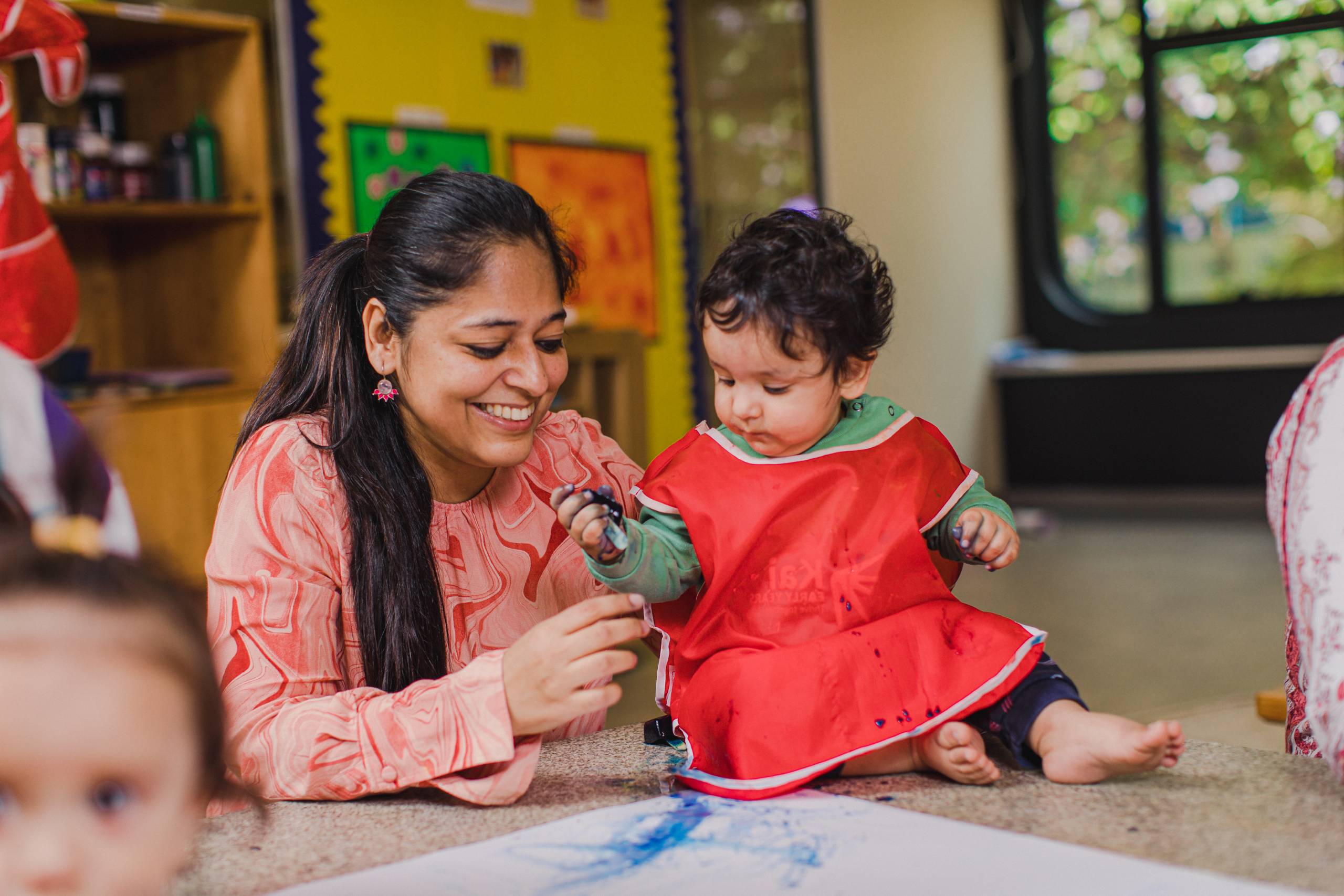Breaking the Habit: Effective Strategies to Stop Your Child’s Nail Biting
Nail-biting, a seemingly harmless habit, can often be a source of frustration for both parents and children. It’s a habit that can stem from various reasons – curiosity, boredom, stress relief, or imitation. The first step in addressing this common behaviour by any of the staff of good IB Preschools in Bangalore is understanding why children bite their nails.
Why Kids Bite Their Nails
Nail biting is just one among several “nervous habits” children may develop. These include thumb-sucking, nose-picking, hair-twisting, or teeth-grinding. Often, it’s a coping mechanism for minor stressors or anxieties that children may not even be consciously aware of.
Growing up can be an anxious time for children, and many of these stressors may go unnoticed by parents. Mild nail-biting, especially if it doesn’t result in injury and occurs unconsciously, is usually nothing to be overly concerned about. However, if the habit persists and becomes bothersome, there are effective strategies parents or teachers of Play schools in Whitefield can employ to help their child break free from this habit.
What to Do About Nail Biting
Addressing the underlying anxieties or stressors is crucial. Parents should attempt to understand what might be causing their child’s anxiety – be it a recent move, family changes, or academic pressures. Creating a safe space for children to express their worries can be immensely helpful.
Nagging or punishing a child for nail biting is generally ineffective, especially if the child is unaware of the habit. Instead, setting reasonable limits such as “no nail biting at the dinner table” can be more effective in curbing the behavior without creating tension.
Encouraging open communication and offering support when the child expresses a desire to stop is essential. Parents can discuss with their child about breaking habits and involve them in deciding on strategies to quit.
Effective Strategies
Helping the child become more aware of the habit is key. This can involve subtle reminders or physical cues to discourage nail biting. Offering alternatives like fidget toys, stress balls, or engaging in relaxing activities can redirect their focus away from nail biting.
Encouraging healthy habits like regular exercise, engaging in hobbies, or pursuing creative outlets can also help alleviate stress and reduce the urge to bite nails. Additionally, teaching relaxation techniques such as deep breathing or mindfulness can equip children with coping mechanisms for managing stress.
It’s important to recognize that breaking habits takes time and patience. Children may need to try multiple strategies before finding what works best for them. Providing encouragement, support, and understanding throughout the process is crucial.
When to Seek Professional Help
In rare cases, severe nail biting may indicate underlying anxiety or emotional distress. If nail biting leads to physical harm, interferes with daily activities, or is accompanied by other concerning behaviors, it’s advisable to consult a healthcare professional.
Professional counseling may be necessary to address underlying issues contributing to the habit. Parents should prioritize their child’s mental and emotional well-being and seek help if needed.
Nail biting, while common among children, can be a challenging habit to break. By understanding the reasons behind the behavior and employing effective strategies with patience and support, parents can help their child overcome this habit. Open communication, encouragement, and seeking professional help when necessary are essential steps in supporting children on their journey to breaking the habit of nail biting.
Furthermore, parents can also explore holistic approaches to address nail biting, such as dietary changes or introducing calming activities like yoga or meditation into their child’s routine. Creating a nurturing environment at home where children feel safe expressing their emotions can significantly aid in managing stress and reducing the urge to bite nails.
Moreover, parents should lead by example by managing their own stress levels effectively. Children often mimic behaviors they observe in adults, so practicing healthy coping mechanisms and self-care can positively influence a child’s response to stress.
In addition to individual strategies, involving the child’s school or pediatrician can provide further support and guidance. School counselors or mental health professionals may offer resources or interventions to assist in managing stress and breaking the habit of nail biting.
Moreover, in nurturing environments such as IB Preschools in Bangalore and Play Schools in Whitefield, children learn valuable life skills and coping mechanisms that equip them to manage stressors effectively. These schools provide a holistic approach to education, focusing not only on academic development but also on emotional well-being. Through play-based learning and interactive activities, children learn to express themselves, regulate their emotions, and build resilience, which are essential in overcoming habits like nail-biting. With the right support and guidance, children can thrive and develop healthy habits that will benefit them throughout their lives.

